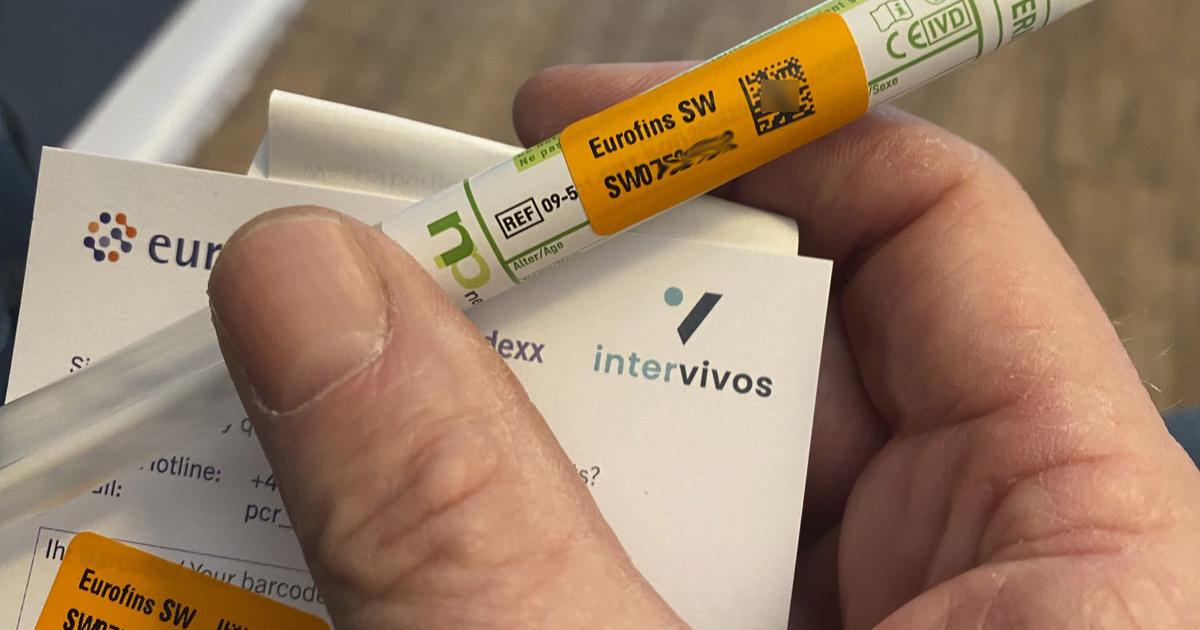Corona summit: PCR tests, vaccinations, events - that's what the Scholz group decided
Created: 01/24/2022, 20:56
By: Andreas Schmid
On Monday, the federal and state governments will discuss the current corona situation.
Chancellor Scholz announces the further course of action.
© IMAGO / Bernd Elmenthaler
The next Corona summit is passé.
There were neither large-scale easing nor far-reaching restrictions.
However, some adjustments have been made.
An overview of the decisions.
Berlin – For the time being, much of Germany’s pandemic policy will remain the same.
The federal and state governments are following the course of "keep it up".
Means: No tightening, no loosening.
It's about "staying on course," emphasized Chancellor Olaf Scholz.
However, further steps will be agreed if there is a risk of the health system being overloaded.
It is currently too early for concrete opening steps.
Overall, the federal-state summit only made selective adjustments to the current measures.
"The Federal Chancellor and the heads of government of the federal states agree that the rules that have been in force up to now continue to apply in principle," says the decision paper of the Prime Ministers' Conference.
However, there are a few new regulations, such as PCR tests or quarantine for nursing staff.
An overview.
Opening prospects
: The federal and state governments want to “develop opening prospects”, but only if “an overloading of the healthcare system can be ruled out”.
Scholz expects the omicron wave to peak in mid-February.
Large-scale national events
: “a standardization of the existing regulations” is needed here.
This should be the case by February 9th.
When and where more spectators (e.g. in sports) will be allowed again depends on the decisions of the respective state governments.
Bavaria's Prime Minister Markus Söder wants to relax in this area.
Vaccination
: The federal and state governments are once again appealing for vaccinations or boosters.
The Moderna vaccine should be given priority for everyone over the age of 30.
Biontech's vaccine is available for children and adults up to the age of 30.
In the MPK, Thuringia put pressure on the use of the protein-based vaccine Novavax, especially for people who are affected by the facility-related vaccination requirement in the care sector.
Testing
: There are bottlenecks in PCR testing.
The PCR tests, which are only available to a limited extent, should be restricted to vulnerable groups and employees who care for and treat them.
The rest should resort to antigen tests.
Quarantine and isolation
: The nationwide rules now also apply to nursing staff.
This means that the isolation after a proven infection can be ended after seven days with a rapid antigen test.
Boosted contacts are exempt from quarantine.
Recovered and vaccination status
: explosive topic within the federal-state group.
There was criticism of Health Minister Karl Lauterbach.
The decision paper states that such decisions should “in future be announced and justified in good time before they come into force due to their considerable scope”.
Contact
tracking: The health authorities can no longer adequately track all contacts.
Therefore, prioritization takes place.
What this should look like in concrete terms should be explained “promptly” by the Robert Koch Institute and the Conference of Health Ministers.
Protection of old people's and nursing homes
: The federal states should collect the necessary data on the vaccination rate among employees and residents in old people's and nursing homes.
The Ministry of Health is examining the possibilities of comprehensive monitoring.
Critical infrastructure
: Should the situation in this area deteriorate, the federal and state governments want to “react immediately accordingly”. Many areas of critical infrastructure are prepared for a severe loss of staff and have adjusted their plans accordingly. "The measures taken have contributed to the fact that no threats to basic services have arisen so far."
Digitization
: "Short and medium-term measures are needed in the field of digitization of the healthcare system".
It is also about the introduction of the German electronic reporting and information system (DEMIS) in the hospitals.
It is unclear whether a vaccination register is also included.
Baden-Württemberg and Hesse called on the federal government to examine the establishment of a central vaccination register in the short term.
Economic aid and short-time work allowance
: Economic aid and the special regulations for short-time work allowance will be extended until March 31, 2022.
A decision should then be made “promptly” on future aid.
During the summit, the heads of government from Bavaria, Saxony, Hesse and North Rhine-Westphalia put pressure on them to present a solution "quickly".
Next MPK
: The next federal-state meeting is planned for February 16th.





